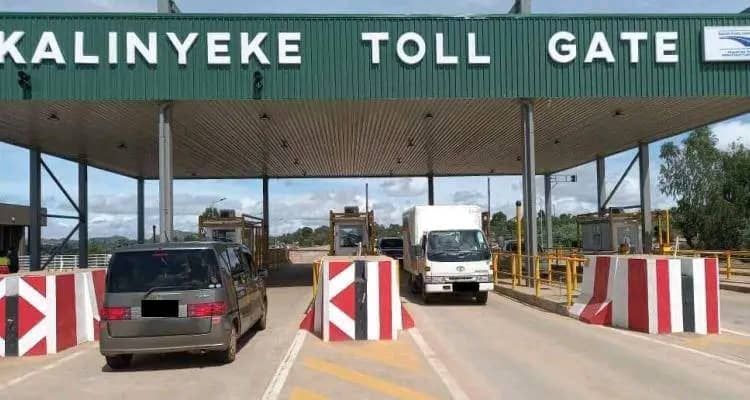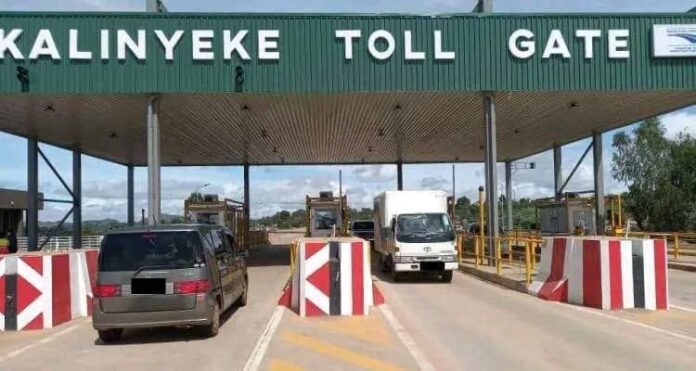By Burnett Munthali
In a move that has sparked heated debate, the Centre for Democracy and Economic Development Initiatives (CDEDI), a prominent governance lobby group in Malawi, has strongly objected to the government’s proposal to increase toll gate fees. The government’s consideration to raise toll fees comes in the wake of the country’s ongoing economic pressures, with Transport Minister Jacob Hara announcing on Friday that the government is contemplating the fee hike as a measure to address financial strains, including the devaluation of the local currency.
According to Minister Hara, the proposed fee increase is part of efforts to mitigate the mounting economic challenges facing the nation. As Malawi grapples with inflation, the rising cost of living, and a depreciating currency, the government is seeking ways to boost its revenue generation. The toll gate fee hike is just one of several strategies under consideration to help plug the widening fiscal gap.

However, the proposal has been met with resistance from CDEDI, whose executive director, Sylvester Namiwa, has described the timing of the move as ill-considered. Namiwa argues that increasing toll gate fees at this juncture would only exacerbate the already dire economic situation for the majority of Malawians. He pointed out that most people in the country are already grappling with high prices for basic goods and services, and an increase in transportation costs would add further strain to their daily lives.
The opposition from CDEDI is not just about the financial burden on ordinary citizens; it also touches on concerns about the broader economic strategy employed by the government. Namiwa has alleged that the government’s push for a toll fee increase is more about expanding its revenue base to fund its political campaigns than about addressing the country’s economic challenges. He suggested that the government, which has been under pressure from various sectors due to its handling of the economy, is resorting to raising funds through such measures to finance its political activities rather than prioritizing tangible solutions to the problems faced by the Malawian populace.
The toll gate fee hike proposal, if implemented, would mean increased costs for motorists and businesses that rely on road transportation. This would particularly affect small-scale traders, who already face difficulties due to rising fuel prices, inflation, and the devaluation of the kwacha. With these added costs, transportation companies and traders might raise their prices, leading to an inevitable increase in the cost of goods and services. This would further fuel the cycle of inflation, making it harder for the average Malawian to afford even the most basic essentials.
CDEDI’s opposition to the fee hike is rooted in its broader critique of the government’s approach to governance and economic management. The lobby group has long argued that the government needs to adopt more sustainable and people-centered economic policies, focusing on long-term structural reforms rather than short-term revenue-raising tactics. According to Namiwa, the government should be looking at measures that will reduce the cost of living for Malawians, including addressing the root causes of inflation, improving productivity, and curbing corruption, which he believes is a major drain on public resources.
Namiwa’s concerns reflect a growing discontent among the public, who feel that the government’s economic policies have not been effective in improving their living conditions. The recent hikes in fuel prices, the soaring costs of goods and services, and the devaluation of the kwacha have left many struggling to make ends meet. With a large portion of the population living below the poverty line, any additional financial burden is seen as a step backward rather than a solution.
The debate surrounding the proposed toll fee increase also highlights the ongoing tension between the government’s fiscal needs and the welfare of the people. While the government insists that the revenue from increased toll fees would help ease the pressure on public finances, critics argue that the funds should be raised through more equitable and sustainable means. These could include tackling wasteful government spending, improving tax collection, and promoting economic growth through job creation and investment in infrastructure.
In the coming days, the government will likely face intense scrutiny over its proposal. CDEDI and other civil society groups are expected to continue raising their voices in opposition, urging the government to reconsider its approach. They will also likely call for greater transparency and public participation in discussions about economic policies, especially those that directly affect the livelihood of ordinary citizens.
As the debate unfolds, it is clear that the issue of toll gate fees is only one aspect of a much larger conversation about the state of the Malawian economy. For many, the question is not just about whether toll fees should be increased, but whether the government is truly committed to tackling the deeper issues that are causing economic hardship for millions of Malawians. While the toll fee proposal may provide a temporary boost to government revenues, it is unlikely to address the fundamental issues that need to be tackled to bring lasting economic stability and prosperity to the country. Only through a holistic and inclusive approach to economic governance can Malawi hope to navigate its current challenges and build a brighter future for all its citizens.



